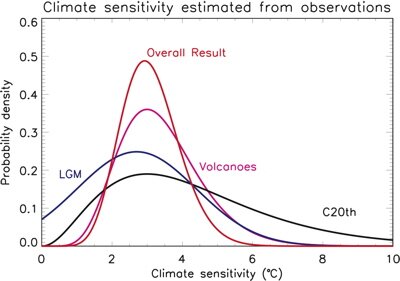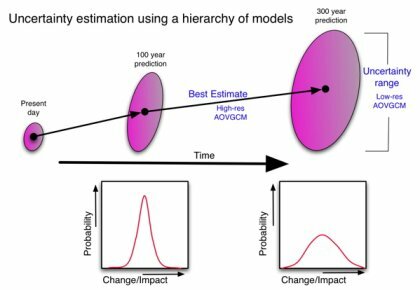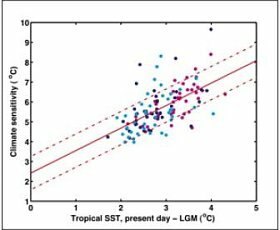Welcome to JUMP, phase 2.
JUMP (Japan Uncertainty Modelling Project) is now in its second phase. The JUMP name remains, although many institutes in Japan have changed name. JUMP is now based at the Research Institute for Global Change (formerly FRCGC), and links with groups in NIES and AORI (formerly CCSR) working on similar subjects. Running for 5 years, from April 2012, the goal of JUMP remains investigating and reducing uncertainty associated with various aspects of climate change ranging over the multidecadal to centennial time scale. Paleoclimate studies remain a strong aspect of our reseach activities.
Projects
The funding for the second phase of JUMP comes mostly from two externally funded projects. In the wake of the earthquake and tsunami in March 2011, the political agenda for climate science in Japan changed. The previously rather conservative general exploration of climate change became focused on ideas such as "risk", "dangerous climate change" and "tipping points". We are to imagine the unimaginable, and explore all those low probability high impact events. To understand this radical shift, consider that, in minds of the politicians, last March we experienced a one in 1000 year event. Both of the two projects, called ICA=RUS and SOSEI, lean in these directions.
As of mid-2012, ths website is no longer being maintained. Please visit our new JUMP website: here
Methods
A range of methods will be used to attack distinct problems. We have used the ensemble Kalman filter to generate ensembles of multivariate parameter sets to drive a number of climate models of varying complexity [2,7,8]. This relatively efficient method enables us to sample the uncertainty arising from the multivariate interactions between parameterisations. We are developing a particle filtering method to improve performance in highly nonlinear applications. We also plan to investigate relationships across the spectrum of model resolution and complexity (see next section) in order to enable us to efficiently estimate uncertainty arising from the full range of processes.



